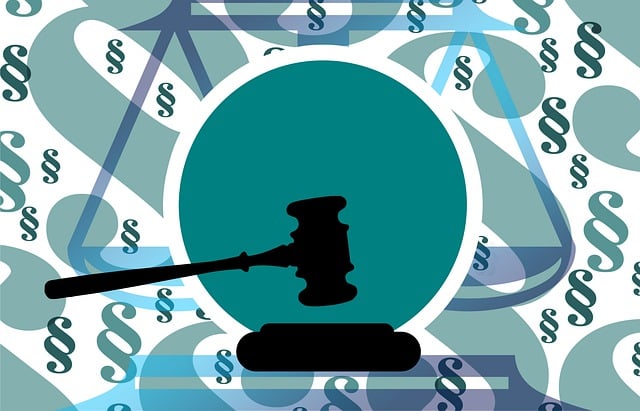Financial fraud remains a persistent threat requiring advanced detection methods, such as AI, machine learning, and data analytics. Plea bargaining in financial fraud cases balances tactical advantages with ethical considerations, especially regarding vulnerable defendants. These technologies transform fraud detection by analyzing large datasets, identifying patterns, and predicting fraud. However, globalized transactions and complex investigations pose challenges, necessitating a multi-faceted approach including regulatory oversight, internal controls, and employee training. Preventive measures aim to proactively combat fraud, leveraging advanced analytics for early identification and deterrence. The fusion of cutting-edge technologies with robust regulatory frameworks will drive future fraud detection, while addressing the ethical implications of plea bargaining decisions remains crucial for ensuring fairness in financial systems.
Financial fraud, a subtle yet potent threat to global economies, demands sophisticated detection methods. This comprehensive article delves into the intricate world of fraud prevention and investigation, exploring key aspects such as understanding common schemes, the ethical landscape of plea bargaining, and the transformative power of AI. We dissect challenges faced in uncovering fraudulent activities and offer insights into preventive strategies, highlighting future prospects for a robust defense against financial crimes. Ethical implications of plea bargaining decisions also feature, offering a nuanced perspective on this critical component of fraud prosecution.
- Understanding Financial Fraud: A Comprehensive Overview
- The Role of Plea Bargaining in Fraud Cases: Ethical Considerations
- Advanced Detection Techniques: AI and Machine Learning Applications
- Challenges in Fraud Investigation: Common Obstacles and Solutions
- Preventive Measures and Future Prospects: Building a Robust Defense
Understanding Financial Fraud: A Comprehensive Overview

Financial fraud is a pervasive and evolving crime that poses significant challenges to individuals, businesses, and financial institutions alike. Understanding its intricacies is paramount in the modern economic landscape. This involves recognizing various schemes, from identity theft and money laundering to complex investment scams. Each method leverages sophisticated techniques, taking advantage of vulnerabilities within digital systems and human psychology.
The detection process requires a multi-faceted approach, integrating advanced technologies like artificial intelligence and machine learning with robust data analytics. Financial institutions must stay ahead of perpetrators by continuously updating their risk management strategies. Moreover, examining the ethical implications of plea bargaining decisions in high-stakes cases is crucial, particularly in white-collar defense, where strategies often involve striking agreements that can shape the overall perception of justice and deterrence in financial fraud prevention.
The Role of Plea Bargaining in Fraud Cases: Ethical Considerations

In financial fraud cases, plea bargaining plays a significant role as it offers both tactical advantages and complex ethical considerations. This legal strategy allows for guilty pleas in exchange for reduced charges or sentencing, which can be advantageous for prosecutors aiming to achieve extraordinary results quickly. However, the ethical implications of these decisions are profound.
On one hand, plea bargaining can lead to more efficient justice administration, as it streamlines the process and reduces the burden on courts and jurors. This is especially relevant in cases where extensive evidence or complex financial transactions might make a speedy resolution desirable. Yet, the potential for unfairness looms large, particularly when vulnerable defendants or those with limited resources are involved. Across the country, there’s growing scrutiny into the use of plea bargaining, as concerns rise about its impact on due process rights and the integrity of the justice system. Therefore, striking a balance between prompt resolution and fairness remains a delicate task for legal professionals.
Advanced Detection Techniques: AI and Machine Learning Applications

In the realm of financial fraud detection, advanced techniques such as Artificial Intelligence (AI) and Machine Learning (ML) have emerged as game-changers, revolutionizing the way financial institutions combat fraudulent activities. These cutting-edge technologies offer an unparalleled level of precision and speed in analyzing vast datasets, enabling analysts to uncover intricate patterns indicative of malicious schemes. By learning from historical data, AI algorithms can identify anomalies and predict potential fraud with remarkable accuracy, thereby enhancing the efficiency of investigations.
The application of AI and ML spans all stages of the investigative and enforcement process, from real-time transaction monitoring to profiling high-risk individuals and entities. In white-collar defense, these tools assist in navigating complex financial networks, uncovering hidden assets, and providing vital insights for strategic decision-making. Moreover, they play a crucial role in jury trials by presenting compelling evidence, thereby influencing plea bargaining decisions and ensuring fair outcomes while addressing the ethical implications that often surround such negotiations.
Challenges in Fraud Investigation: Common Obstacles and Solutions

Fraud investigations face numerous challenges, often hindering their effectiveness. One significant obstacle is the complex nature of financial transactions, which can be difficult to trace and verify. To overcome this, investigators employ advanced analytics and data mining techniques to identify patterns and anomalies indicative of fraudulent activities. Additionally, globalization poses a challenge with cross-border transactions requiring international cooperation and legal frameworks for successful prosecution.
Addressing these issues requires a multi-faceted approach. Enhancing regulatory oversight and implementing robust internal controls can deter potential fraudsters. Encouraging ethical practices within the financial sector, including transparent reporting and strict compliance, is crucial. Moreover, the Ethical Implications of Plea Bargaining Decisions play a significant role in winning challenging defense verdicts, as they must be balanced against avoiding indictment for corporate and individual clients alike.
Preventive Measures and Future Prospects: Building a Robust Defense

Preventive measures play a pivotal role in combating financial fraud, reflecting a shift from reactive to proactive strategies. Organizations are increasingly adopting robust defense mechanisms, such as advanced analytics and machine learning algorithms, to identify patterns indicative of fraudulent activities at an early stage. This includes implementing stringent internal controls, enhancing employee training on ethical conduct, and fostering a culture that discourages unethical practices. By integrating these measures into their operations, businesses can significantly deter potential fraudsters and mitigate risks.
Looking ahead, the future of financial fraud detection lies in the fusion of cutting-edge technologies and robust regulatory frameworks. While traditional methods like audits and manual reviews remain essential, emerging trends suggest a greater emphasis on real-time data analysis and predictive modeling. As technology evolves, so do the tactics of fraudsters; thus, continuous innovation in this domain is crucial. Moreover, addressing the ethical implications of plea bargaining decisions in cases involving white-collar and economic crimes is vital to ensuring fairness and maintaining public trust in financial systems.
In the ever-evolving landscape of financial fraud detection, understanding the intricate interplay between legal strategies and advanced technology is paramount. This article has navigated through diverse aspects, from comprehending the nuances of financial fraud to exploring cutting-edge AI applications in its identification. It highlighted the complex ethical implications of plea bargaining decisions, while also addressing common challenges in investigation and preventive measures for a robust defense. By integrating these insights with innovative techniques, professionals can navigate the intricate web of fraudulent activities, ensuring a more secure and transparent financial system.






